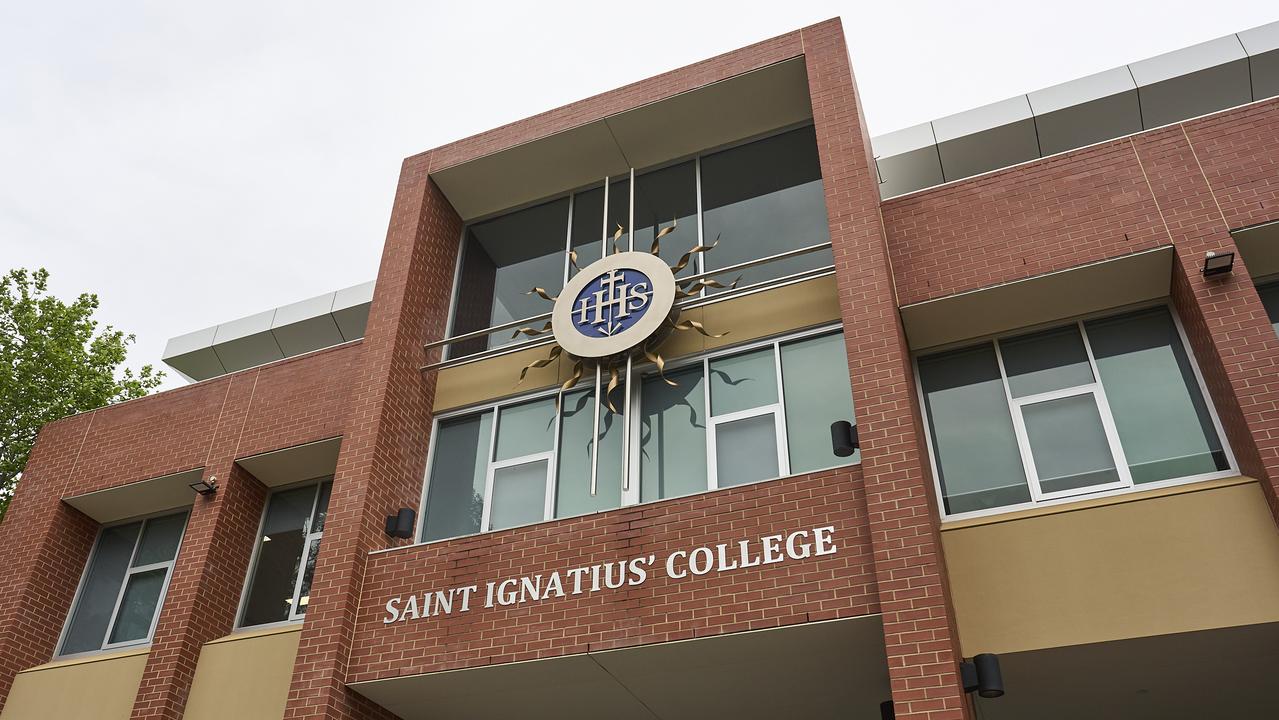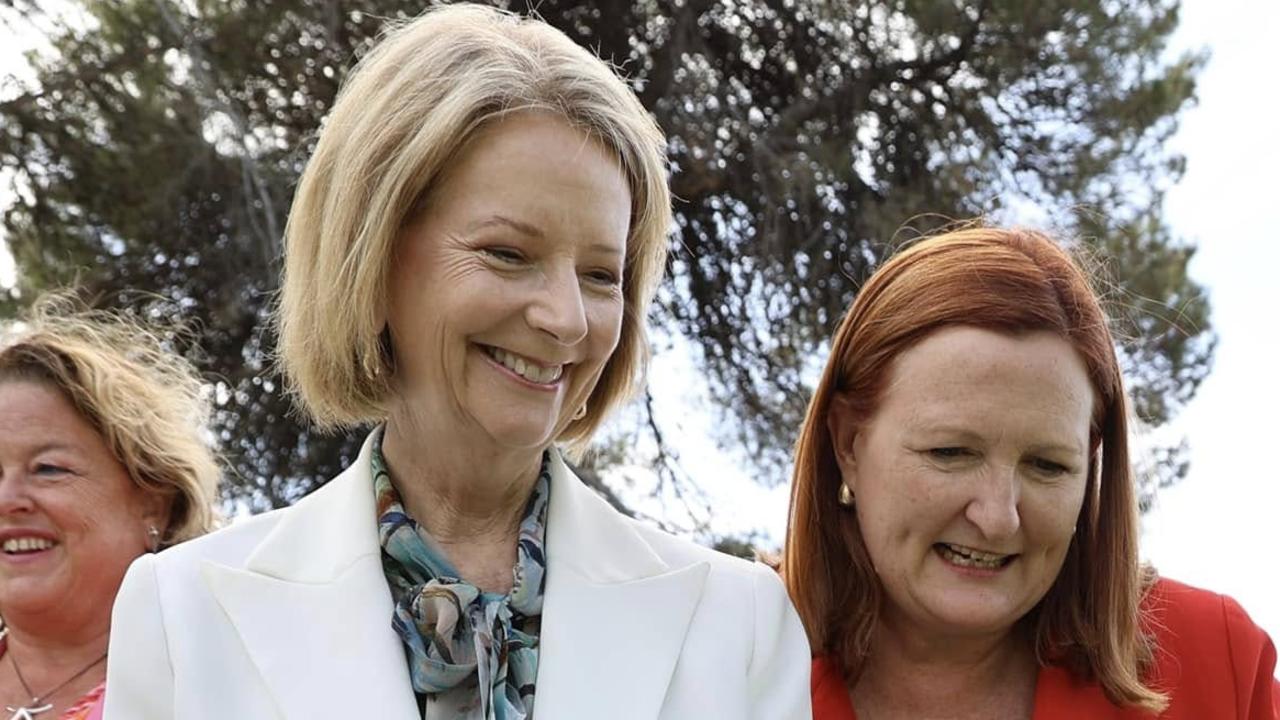Farmers and David Littleproud warn of supermarket price hit from carbon emissions regime
SA farmers and the Nationals are warning they cannot absorb the costs of a new scheme the government says will maximise opportunities in a clean economy.
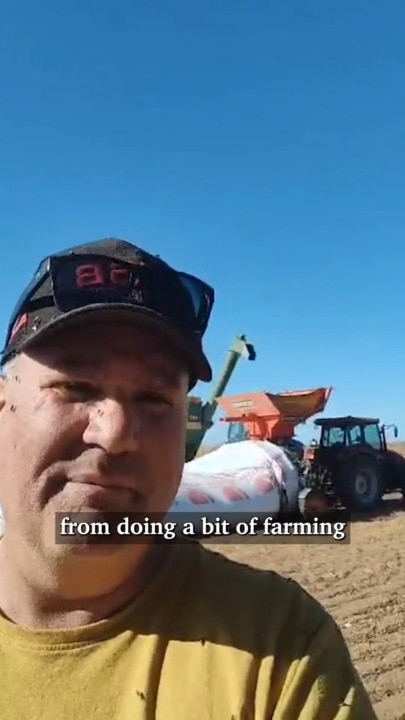
SA News
Don't miss out on the headlines from SA News. Followed categories will be added to My News.
Householders are being warned of a hit to supermarket prices and banking costs because of a $2.3bn mandatory carbon emissions reporting burden being passed on to farmers.
Nationals federal leader David Littleproud and the National Farmers’ Federation (NFF) say a climate-related financial disclosure scheme for large firms, being phased in from next year, will hike costs for banks, suppliers, supermarkets and other customers.
Major banks are understood to be in talks with the NFF about reducing farmers’ hefty but unknown compliance burden – this has been estimated at $2.3bn for all firms across the economy in the first year alone.
At least 1800 firms are expected to participate in the scheme, which Treasury says is designed to “appropriately price climate-related risks and opportunities” and document companies’ actions to “meet their climate change targets”.
South Australian farmers warn they face huge costs and crippling red tape, compromising their mission to produce world-leading food. “You can’t eat carbon,” said Yorke Peninsula farmer Elden Oster.
Treasurer Jim Chalmers has argued the scheme helps Australia maximise the economic opportunities of “cleaner, cheaper and more reliable energy and manage climate change risks”.
But Mr Littleproud, in an interview with The Advertiser, said the estimated $2.3bn compliance burden estimated by Treasury would have to be passed on to consumers.
“It means prices have to go up. No one can absorb that. That has to be passed on. $2.3 billion is a lot of money and there’s no business that can absorb those costs without being able to pass them on,” he said.
“ … It’s the financial burden for farmers from all scales that are going to have to comply with this legislation. This is an ongoing cost that is just adding more cost to the end consumer.
“This is where the uncertainty is. This is where it’s unnecessary and no one else in the world is doing it bar Australia – and I suspect it’s all so that Anthony Albanese can walk on the world stage and say he’s doing more than anybody else when, in fact, all he’s doing is adding cost to everybody.”

Under legislation passed in early September, firms will be required to report climate-related emissions, eventually including those through their supply chain, known as Scope Three – likely from 2027.
Mr Littleproud argued a similar scheme had been rejected by United States President Joe Biden and went beyond measures introduced in the European Union, Canada and the United Kingdom.
New Zealand in June vowed to scuttle a tax on livestock methane emissions, known as a burping tax, with that nation’s agriculture minister insisting climate change obligations could be met without “shutting down Kiwi farms”.
Mr Littleproud, also the federal Opposition’s agriculture spokesman, vowed the Coalition would overturn the climate-related financial disclosure scheme if elected at a poll expected by May.
“What we’re seeking from the Australian people, is to take away this burden in a cost-of-living crisis away … You don’t impose it when there are people tonight that won’t have dinner,” he said.
Mr Oster, part of a farmers’ group campaigning against the scheme after The Advertiser’s Bush Summit in August, said it would trigger “extra red tape reporting and cost on food production”.
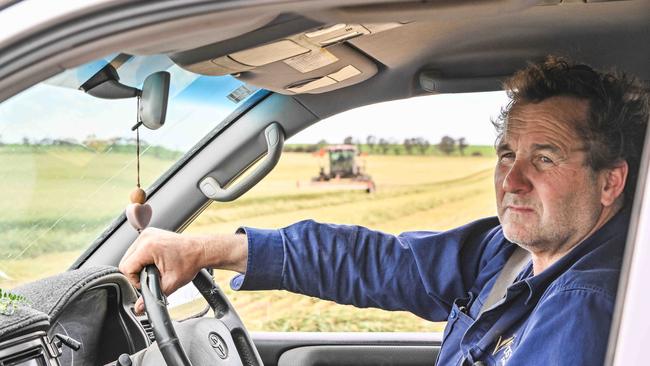
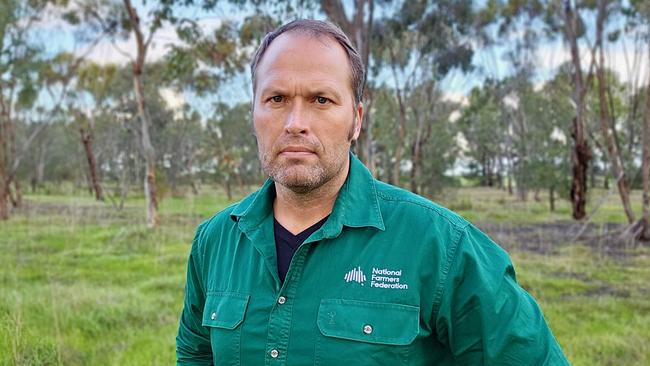
“We’ve got more red tape, more bureaucracy, more experts telling us what we can and can’t do. And now the carbon space is going to cripple the mindsets, the mental health and the capacity of farmers to have to do mandatory reporting, which isn’t mandatory yet,” he said.
“It’s time for the Australian Government and the Australian people to realise that we are growing food, and some of the best food in the world, to feed the world and to feed our great nation – and you can’t eat carbon.”
NFF president David Jochinke, a western Victorian farmer, said the changes would “lead to more red tape and higher costs, but the full extent of the burden remains unknown”.
“Farmers are increasingly frustrated by the rush to implement lofty green goals without considering the practical impact on small farming businesses,” he said.
He said farmers were frustrated that the Australian Accounting Standards Board had yet to clarify the real-world implications for them, although their banks, insurers, suppliers and customers likely would need data for their reports.
“Once we have this crucial detail, we’ll work with the supply chain to ensure farmers aren’t disproportionately lumped with excessive reporting and compliance costs,” Mr Jochinke said.
“Farmers are already struggling under the strain of red tape and escalating input costs. Adding more compliance means our bottom line will take a hit.
“Farmers will need to collaborate to find the most efficient and cost-effective ways to meet supply chain demands once they become clear.”
Mr Jochinke said it was crucial that farmers’ data was protected and they received support to implement the scheme.
An Australian Banking Association spokesman said: “Banks will work with customers on how to implement the government’s new legislation.”
The government argues climate risk disclosures are mandatory only for large companies and farms will be required to contribute to Scope Three reporting of larger companies with reporting obligations, only when the data is available without undue cost or effort.
Responding to Mr Littleproud, a spokesman for Dr Chalmers said: “We’re coming at this cost-of-living challenge from every conceivable and responsible angle.
“Whether it’s our tax cuts, energy bill relief, holding supermarkets to account or cracking down on dodgy deals and excessive surcharges, we’re easing cost-of-living pressures and giving families and farmers a fair go.”
SA farmers slam ‘pointless’ carbon emissions reporting
Farmers across the state are condemning plans to divert them from feeding the nation and pile on more costs for a carbon-emissions scheme to give people “some nice, warm, fuzzy feeling”.
Farmers from the Mid North and Eyre and Yorke peninsulas told The Advertiser that forcing them to report carbon emissions from their properties would be unworkable, expensive and pointless.
“We’re farming in South Australia. This is the driest state in the driest continent in the world. Our farming practices are second to none,” said Yorke Peninsula cereal farmer Elden Oster.
“It is unclear. It is unknown and we do not know what lies ahead of us. Our governments have signed up to deals in the last 10 to 15 years, which we had no idea about it, and now they are using us as scapegoats.”
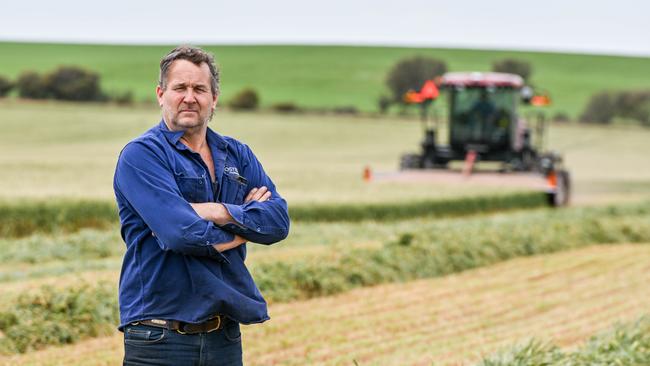
Mr Oster argued farming contributed comparatively little to carbon emissions on a national and global scale.
“Go and have a look at the big emitters overseas. Go and have a look at the massive industrial revolutions overseas and ask them what they are doing. I don’t believe we’re the problem,” he said.
Lock cereal farmer Paul Pearce said Australian farmers were already the world’s most efficient and, if anything, should be given credits for their environmental and soil conservation.
“To have another impost put on them just to record something that in the big scheme of things is pretty minuscule, when we already put more back into the environment and soil than we take out of it and put into the environment as pollution, seems a bit farcical,” Mr Pearce said.
“It’s just another job for the farmer to be doing. We’re already pretty much full-time accountants, mechanics, vets, soil biologists, etc., etc – apart from doing a bit of farming in the in-between sections. Another job like this is just going to add more cost, more time, more effort, more energy.”
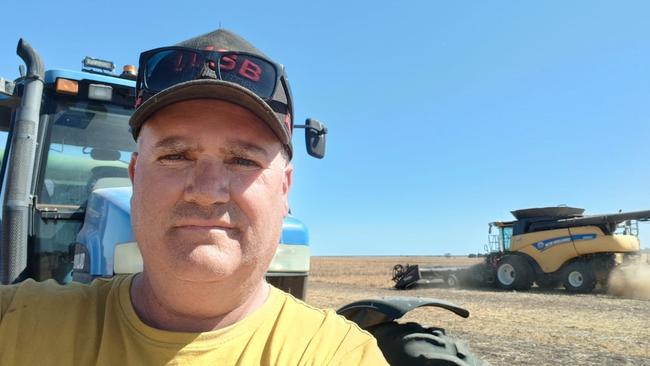
Appila farmer Roger Lange, who is experiencing a record drought in his area, argued carbon emissions reporting had been driven by the European Union, where agriculture is heavily subsidised.
“You talk to any farmers there and they’re ready to get out because they cannot deal with the extra load on top of trying to produce food,” he said.
“So it’s just ridiculous – it might give some voter in Sydney some nice, warm, fuzzy feeling that, you know, we’ve got all these emissions under control, but it really doesn’t improve the efficiency on farm and for making food affordable here in Australia and us to make a margin.
“Our margins already are low as farmers and then they want to stack this on top of them. It just doesn’t stack up. I don’t think it’s going to work.”
More Coverage
Originally published as Farmers and David Littleproud warn of supermarket price hit from carbon emissions regime





